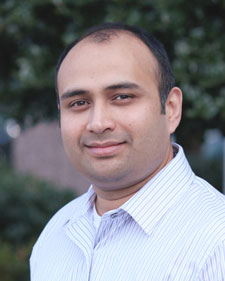Tech Talk and Summer Reading Highlights with Chief Technology Officer, Gopi Yeleswarapu

A few weeks ago Bill Gates published his reading list on his blog. My boss mentioned about
the book How Not to be Wrong, by Jordan Ellenberg, and suggested that I may like
reading it. Here are my thoughts on workflow automation and the challenges of improving the user experience.
5 Books to Read This Summer
Here in Seattle, summer is a gift you earn by gutting out nine months of rain and gloom. The skies are clear, there’s…www.gatesnotes.com
Reading the book, you will understand why Bill Gates would have added to his list of books to read.
Having spent the last dozen years writing software to automate routine tasks and building platforms, I have realized that math has a profound impact on computing, especially automation.
In my opinion automating user workflows is one of the fairly challenging computing problems to solve. Identifying use cases and building rules on what needs to happen next and how, involves a lot of common sense logic applied like mathematical deductions (deduction theorem).
At work, one problem my team and I are working on solving is to apply “if this, then that” rules to automate tasks while taking into account “when and by whom.” Come to think of it, these rules are pure math and if improperly applied can cause chain and circular rule executions leading to infinity.
So taking atomic transactions (derivative) and applying limits (not tending to infinity, maybe 10 for now) is helping us solve the problem of workflow automation, while limiting the number of rules one can execute on a successful completion of a transaction.
The chapter Straight Locally, Curved Globally has really been an inspiration while working on this project over the last few weeks.
Gopi Yeleswarapu
Chief Technology Officer at Sequence Health
Gopi joined the Sequence Health team in 2014 with more than 10 years’ experience in developing complex software and support platforms. Since his arrival, he has led development of our software platform, Sequence, while managing development and support of the existing LeadTracker platform and all other internal IT projects.
He spent the majority of his career building scalable, communication enabled and automation oriented software platforms for Healthcare and Telecom.
Gopi earned his bachelor’s and master’s degrees in Computer Science from Osmania University in India, and a Master’s in Computer Information Systems from the University of South Alabama.






